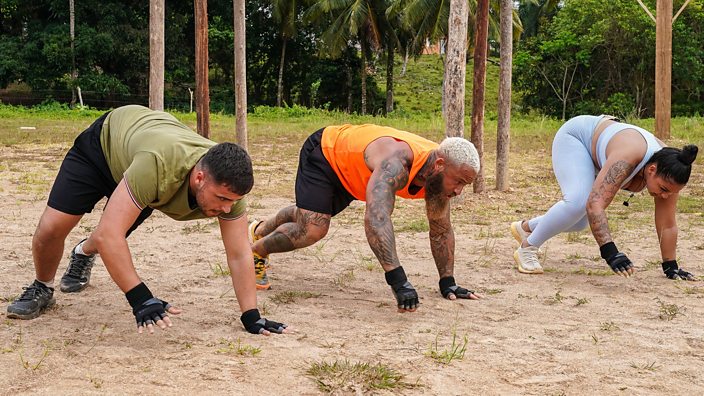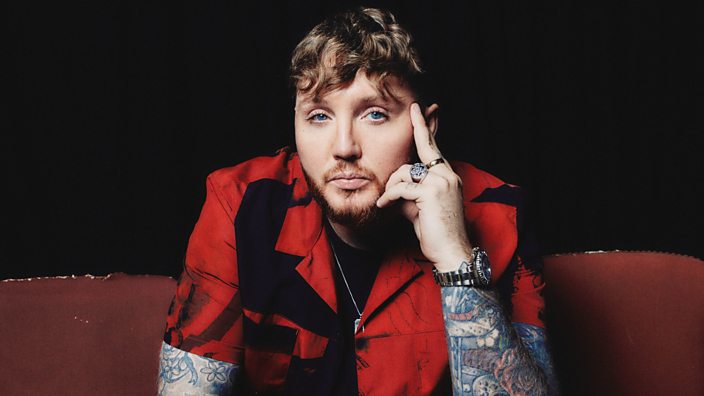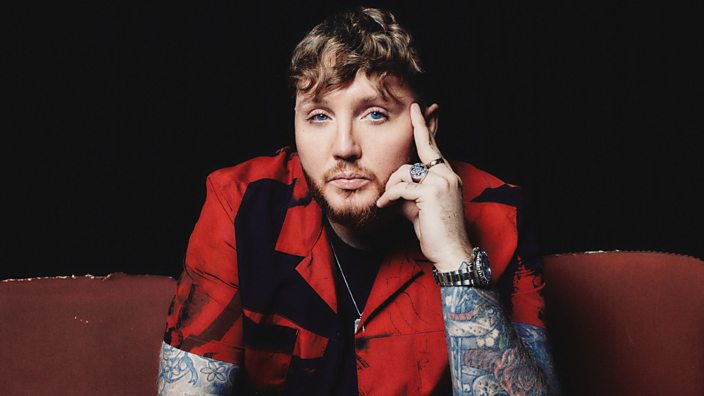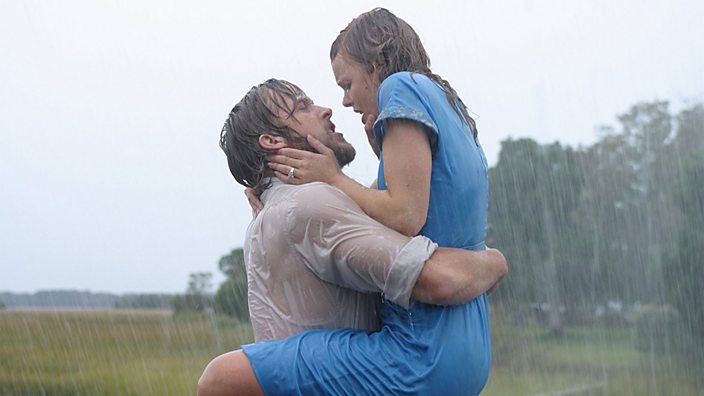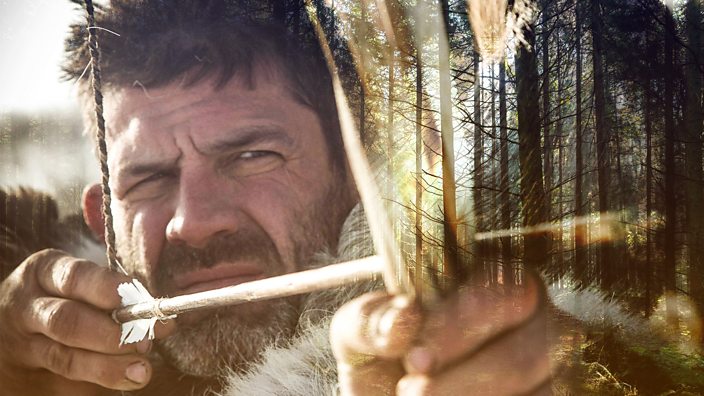 National Geographic Studios/Griffin Kenemer/iStock
National Geographic Studios/Griffin Kenemer/iStockThe man teaching classes in caveman skills
Professor Bill Schindler believes that young Westerners are more disconnected from the natural world than any people in the history of humanity.
“We’ve progressed in lots of ways,” he says. “But, with this progress, we get further and further removed from the things that make us human and from our connection to the environment.”
Schindler teaches Anthropology and Archaeology at Washington College, in which his students learn to build fires with hand-drills, make stone-tipped spears and bows and arrows, gather tree nuts, create ceramic bowls from clay, tan hides, and hunt and butcher animals.
It’s an unusual class, but one that’s clearly resonating with students - it’s always fully enrolled.
He once asked a class to crack eggs and separate the yolks from the whites. When he returned 10 minutes later, not a single egg had been cracked. “I asked them if the problem was that nobody had ever told them how to separate the yolk from the whites, and received blank stares in return,” he has said. “After a minute of silence, one of them said, ‘I’ve never cracked an egg.’ I was floored—how do you even make it to 19 without cracking an egg?”
They learn to do a lot more than crack eggs in Bill’s class.
Mike Whisenant, one of Bill’s students, tells me about a lesson in which the class were given two deer carcasses to butcher with stone tools.
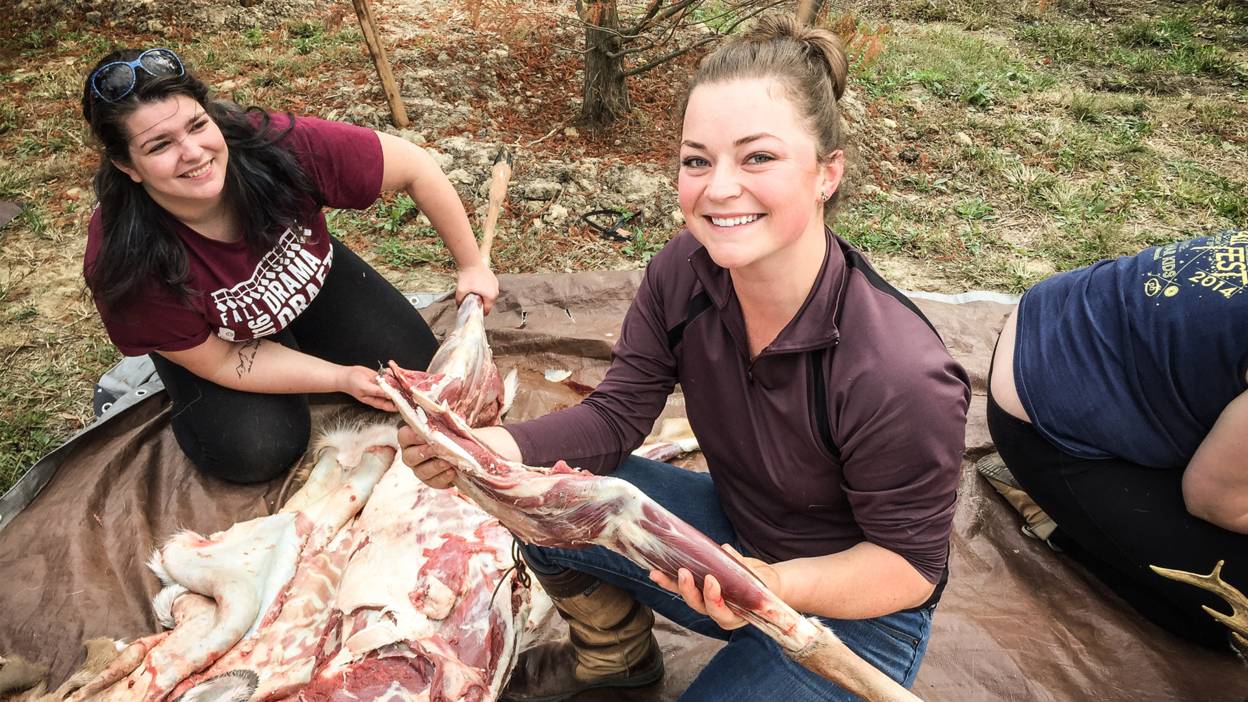 Bill Schindler
Bill Schindler
“I urge people to be hunter-gatherers – even if it’s just once a year... It will help you think about your world entirely differently.”
Professor Bill Schindler
“We used the hinds to make clothing, the hooves to boil down and make glue. Different students wanted different pieces of the animal for different projects. One of the students wanted to take the eyeball to make a paint.”
There is evidence our mental health could be suffering as a result of our growing disconnect from nature. Doctors prescribe fewer anti-depressants in urban areas with more trees on the street. In Spain, people living within 300 metres of green spaces have reported better self-reported health and mental health. Recent research found further correlations between green space and good mental health.
“I urge people to be hunter-gatherers – even if it’s just once a year,” says Schindler. “Fish. Hunt deer. Do a little bit of foraging. Go clamming or crabbing. It will help you think about your world entirely differently.”
Mike tells me,“The biggest change for me is in the way I think about food. Bill’s teaching has really helped me learn about what I find ethical.”
Mike elaborated by explaining that, for him, ‘ethical’ meant gathering foods in a way that didn’t have a negative impact on the environment – nothing mass-produced. He says he never used to have these concerns, but now he wants to know where all of his food has come from.
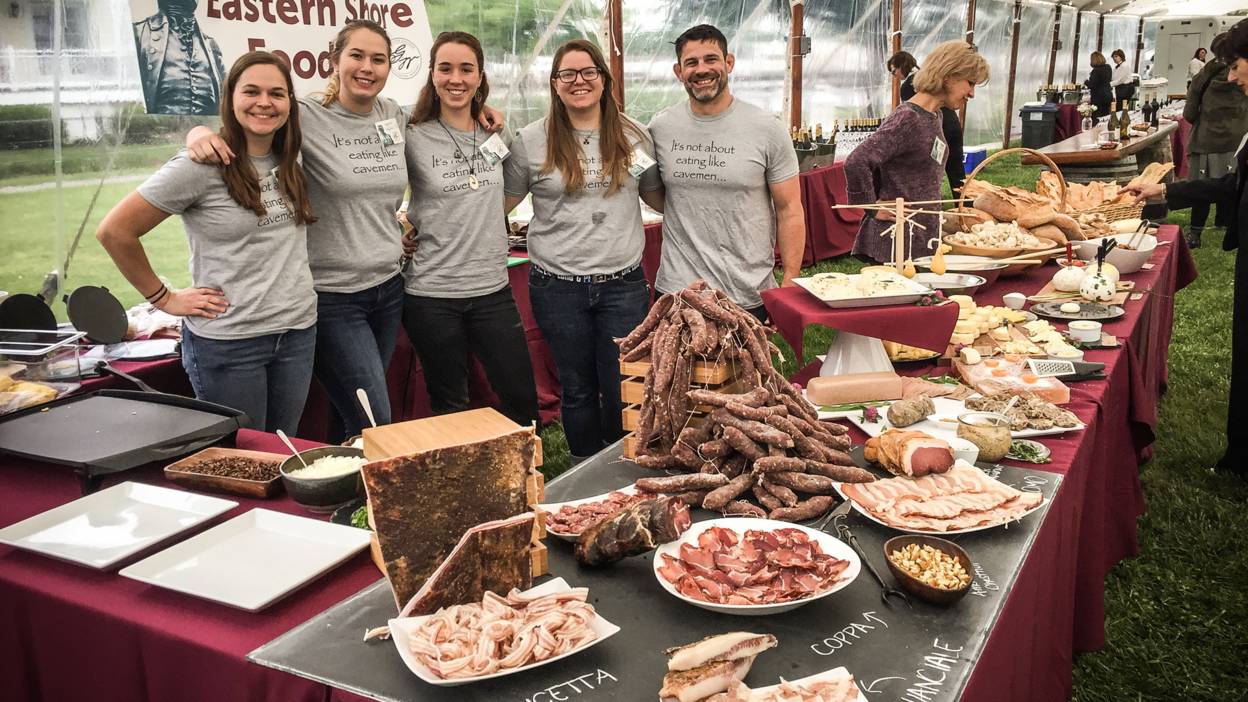 Bill Schindler
Bill Schindler
Recently, Schindler filmed a series for National Geographic called The Great Human Race. In it, he and co-host Cat Bigney went around the world trying to live as our ancestors did in different periods of ancient history.
They travelled to Siberia and tried to live like Ice Age hunters 40,000 years ago. They used wooden hand-drills to create fires and wore hides from animals they had skinned themselves, and climbed a glacier wearing boots they had sewn by hand.
“These technologies” – stone tools and devices to build fires – “began three and a half million years ago, and they allowed our bodies to change.”
The development of early technology allowed humans to have far better nutrition by having the tools available to hunt and butcher meat.
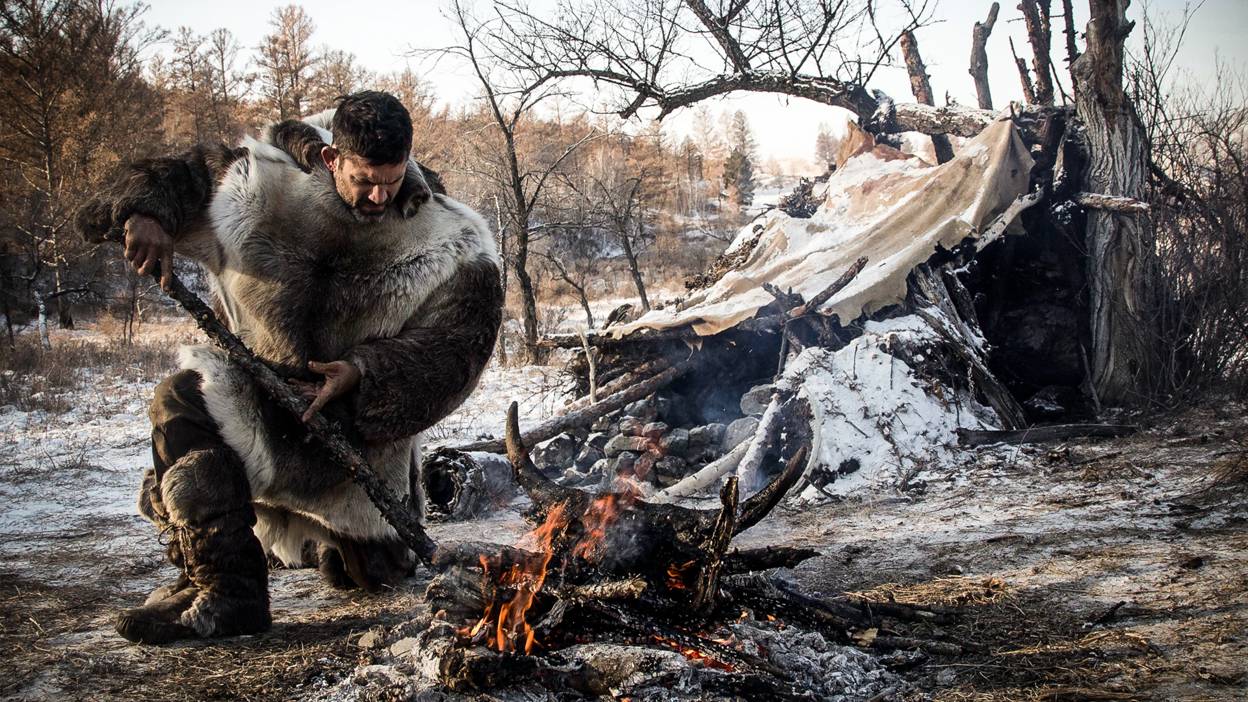 National Geographic Studios/Griffin Kenemer
National Geographic Studios/Griffin Kenemer
Our brain and body size increased rapidly as a result, culminating in the emergence of modern humans.
“We literally evolved,” says Schindler. “Our brains grew, the way we interact with one another grew - as a direct result of these technologies.”
Technological innovations haven’t worked entirely in our favour, though.
“We’re one of the weakest species on the planet,” Schindler tells me. “Our nails, our teeth, our guts are completely useless, compared to a lot of other animals. We transcend these limitations of our bodies by making more tools and technologies.”
There is evidence that the human brain has actually been shrinking for some time – over the past 20,000 years, the human brain has reduced by about the size a tennis ball. Scientists disagree over what this means; is it evidence that humans have become less intelligent, or that we’ve become more efficient?
At home, Bill, his wife and their three children (who are nine, 11 and 13) try to live in harmony with their environment.
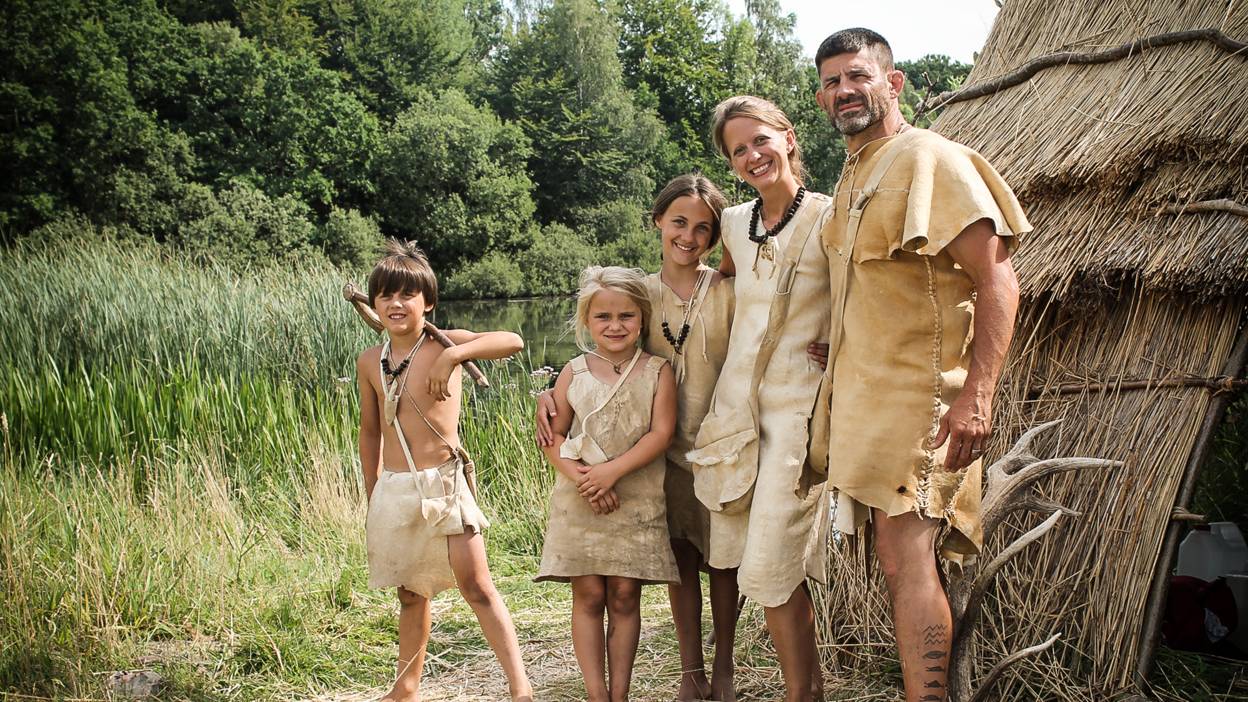 Bill Schindler
Bill Schindler
“We chop wood. We ferment our food – certain cheeses, yoghurts, kefir and sauerkraut. That helps boost our immune systems. We don’t wear animal skins on a regular basis, but my kids know how to butcher an animal, skin it and tan the skin to get clothes from it.”
He thinks this helps his children truly understand the value of what they have.
“When they look at a leather jacket, they don’t think about the shopping mall - they remember when they made their clothes from deer, that it took the life of five animals.”
Bill makes some concessions to the modern world. His children use computers. Occasionally, he will buy meat from a butcher, or vegetables from a market. But, for the most part, they only eat animals that they have killed themselves and plants that they have foraged.
It’s about staying connected to where food comes from.
“When most people think about eating an animal, they think about eating meat. At our house, when we think about eating an animal, we think about eating an animal.”
Professor Bill Schindler
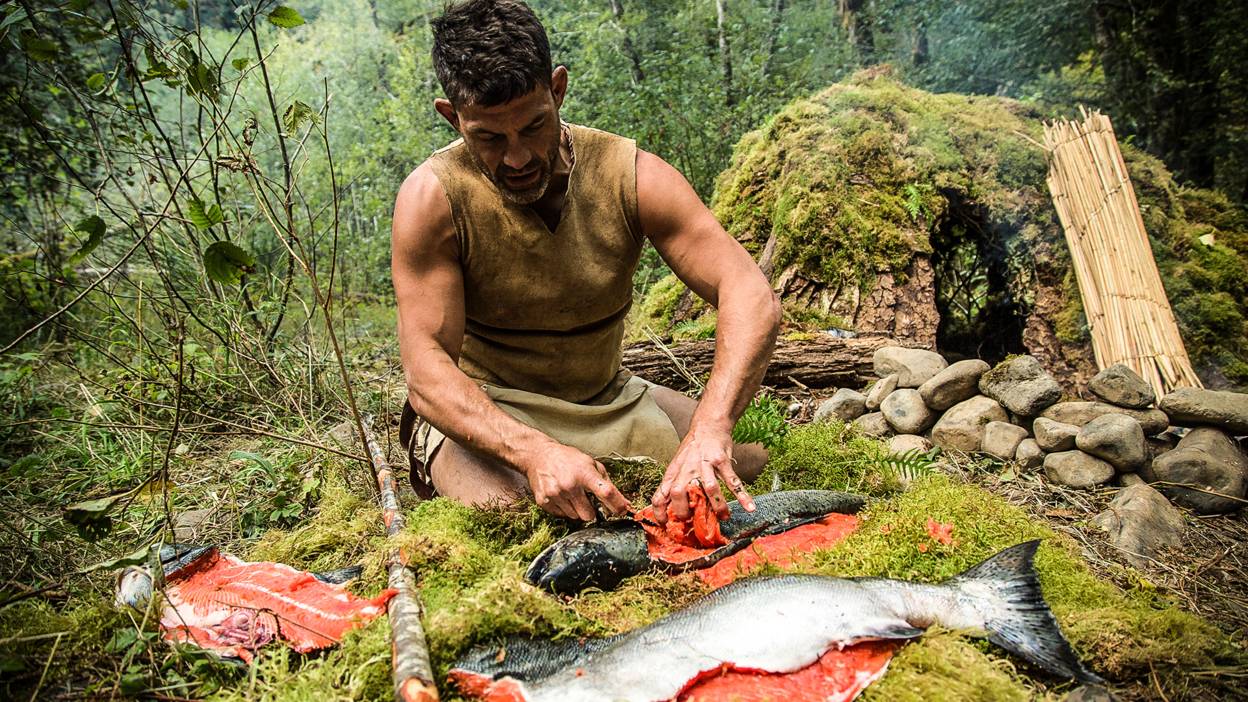 National Geographic Studios/Taria Sheather
National Geographic Studios/Taria Sheather
“When most people think about eating an animal, they think about eating meat. At our house, when we think about eating an animal, we think about eating an animal.”
Bill grew up in a suburban area of New Jersey, and started to make tools at an early age. At the age of 10, against his parents’ wishes, he began foraging.
During the 90s, he changed his university degree seven times. It took him 10 years to graduate in archaeology.
He is now chair of Washington College’s anthropology department.
It’s been a long road for him, but Bill’s a survivor if nothing else.
“That whole journey to get where I am was important. It showed me that all of the things I loved just had to do with life and being human.”
